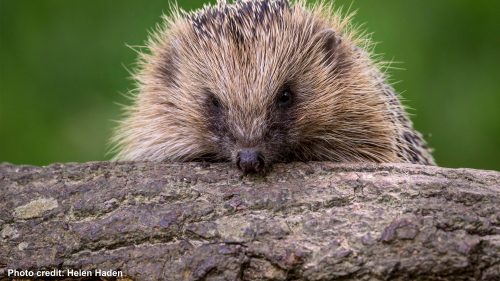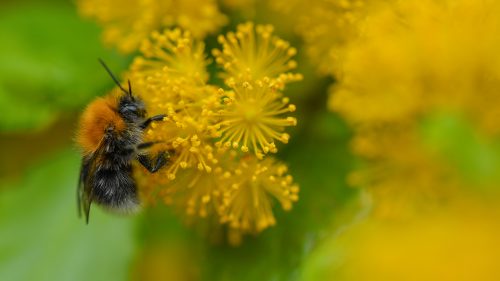The 2019 State of Nature Report reveals that the decline of wildlife across the United Kingdom is not slowing down, but – with immediate action – there remains some hope for many UK species.
Over recent years, a collaboration of more than 70 organisations has worked to understand how nature has changed, and continues to change, across the United Kingdom. Together, they form the State of Nature partnership.
The mass expansion of industry and agriculture since the 1800s has had devastating effects on our nation’s environments and species, and yet diverse thriving ecosystems still survive here today – for the time being.
From the 1970’s, accurate and regular wildlife monitoring has provided the pieces to a jigsaw that when pieced together form a picture of how our wildlife is being altered. The State of Nature Report 2019 updates this jigsaw, with a focus on the last decade. The picture is now a bleak one.
There is decline to be seen across the board of animal and plant groups. 41% of the species studied have declined in abundance in the UK, since 1970.
Conversely, 26% of species have increased in abundance. As we change our climate and our landscape, some species are eliminated, but naturally, others benefit and are granted new space to occupy. Nature can cope with such changes, when they occur over thousands of years, but in such short periods, ecosystems cannot adapt, and the result is an overwhelming loss in biodiversity.

Some species increases are the result of extraordinary conservation projects, undertaken by people from all walks of life, working together to act for wildlife. Many rare birds, like red kites, on the brink of UK extinction 40 years ago, have been brought back. However, this success cannot not mask the raw fact that overall, the total number of breeding birds in the UK fell by 44 million between 1968 and 2009.
There are so many UK conservation achievements to celebrate, which is absolute proof that we can make a difference. The report encourages us to be cautiously optimistic; if we learn from conservation success stories and do much more, we can halt the devastation to precious environments.
What then are the causes of such shifts, and how do we fight them?
The impacts we have as humans are the main drivers. The report targets agricultural management, climate change, urbanisation, pollution, hydrological change, invasive species and woodland management as the most significant pressures on our ecosystems.
The methods that we use to exploit our land and the waste that we produce as a species are simply unsustainable. We must change our behaviour as a nation, or face the loss of this country’s greatest treasure: its nature.

Sarah Bird, UK Biodiversity Officer, said:
“The State of Nature Report reminds us that rhinos and tigers thousands of miles away aren’t the only species under threat; extinction is happening here in the UK, right now. Even species that were once common in the UK are disappearing from our national consciousness. We’re dramatically losing connection with the sights, sounds and smells of nature that we once took for granted.
But the enthusiasm and concern is there. We see it every day in our visitors and supporters here at Chester Zoo. New young conservationists, with strong voices and dynamic actions, are standing alongside the conservation leaders of our time. Wildlife recording by dedicated volunteers is showing us the facts, and successful conservation work is preventing extinction across the UK.”
PSSSTT
It is time for us all to act, and to pressure political leaders and the business community to drive change in society. Time is running out. The State of Nature Report must make a difference, before it’s too late.
Sarah Bird, UK Biodiversity Officer
RIGHT NOW CONSERVATION IS CRITICAL. SPECIES ARE UNDER THREAT AND SO IS THE RICH BIODIVERSITY OF OUR PLANET. WE WON’T STAND BACK, WE’LL LEAD THE WAY, WE’RE BETTER CONNECTED AND MORE INFORMED THAN EVER BEFORE! TOGETHER WE CAN
PREVENT EXTINCTION!
NOW is the time to ACT FOR WILDLIFE. Conservation is CRITICAL; species are under threat. TOGETHER we can make a BIG difference. Take action TODAY and join us in PREVENTING EXTINCTION.